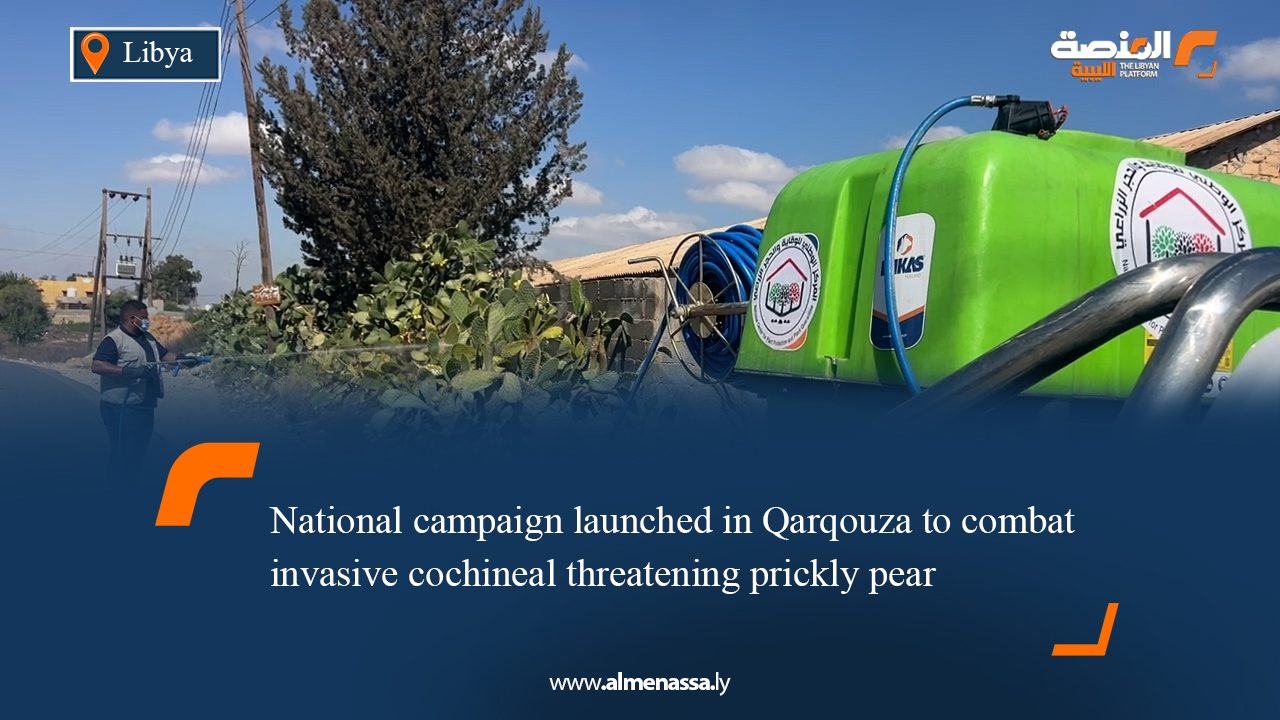Libya’s National Centre for Plant Protection and Plant Quarantine has launched an emergency campaign in Qarqouza to eradicate the cochineal insect, which poses a severe threat to the survival of prickly pear cacti locally known as “Hindi.” The operation involves spraying affected areas with chemical pesticides and mineral oils, and will continue until full coverage is achieved.
Mohamed al-Mazoughi, head of the Agricultural Pest Control Department, reported that the infestation has spread extensively across Mayah, Qarqouza, and Twibiyah. He noted that eradication efforts are complicated by the insect’s waxy coating and its secretion of a deep crimson dye, which requires a specially formulated mix of pesticide and oil for effective treatment.
Meanwhile, Mustafa al-Zarrouq, director of the Zawiya Plant Protection Office, confirmed that the campaign has entered its fifth day in the Maamoura area. He traced the initial outbreak to May 2024 and stressed that the insect feeds exclusively on prickly pear plants, leaving other trees unaffected.
Campaign officials acknowledged that limited resources had previously hindered containment efforts. However, the recent availability of equipment and supplies has enabled the launch of this targeted initiative, aimed at preserving one of the region’s most vital plant species.


